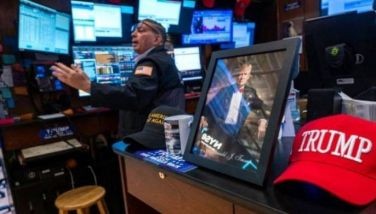Win some, lose some
San Francisco, California – For Filipino-American Mario Villanueva, his life changed dramatically since the onset of the US financial crisis in 2007. When Mario moved to the United States in 1989, the mood then was so different from what is happening today. His wife had a job in a real estate company, while Mario did part-time work both as waiter at the Palace Hotel on New Montgomery St. in downtown San Francisco and as a real estate broker in his wife’s firm.
Together, the couple earned about $700,000 a year – and in just a couple of years, they were able to buy a house in the suburbs of San Francisco, and along with it, two houses in the Philippines: one for his father and one for his retirement. Just like many other Filipinos who have found success and were living the “American dream,” they never had it so good.
But life has changed, and things took a drastic turn for the worse when the American housing bubble burst, triggering what experts acknowledge as the worst financial crisis in the US since the Great Depression of the 1930s. The value of Mario’s investments went down by as much as 60 percent, and he found himself having to work fulltime as a waiter at the Palace Hotel. He was also compelled to send his children to the city college instead of his dream of sending them to private colleges in the US where the fee could range anywhere from $50,000 to $80,000 a year.
Like many Filipinos living in the United States, Mario saw his dream shattering in the wake of the economic crisis, which experts predict could even be worse. US Federal Reserve chair Ben Bernanke had even warned against excessive speculation because it could send the US economy into a new crisis. Despite Barack Obama’s $787 billion economic stimulus package, growth prospects continue to look grim.
Some of America’s leading economists even predict a dismal two percent yearly growth in the US GDP for the next 10 years particularly since the housing and commercial real estate sectors continue to be depressed. Housing triggered the recession as home values fell 30 percent from their peaks in 2005 especially in heavily affected states like California and Nevada.
Analysts say the challenges Barack Obama is facing are similar to the situation in 1979 during the time of President Jimmy Carter when American confidence was at an all-time low with the US facing a huge budget deficit in the wake of the 1974 oil crisis and the loss in the Vietnam War, compounded by impending bankruptcies in the automobile manufacturing industry. “The symptoms of this crisis of the American spirit are all around us. For the first time in the history of our country, a majority of our people believe that the next five years will be worse than the past five years,” Carter lamented in what has been dubbed as his “malaise speech.”
Indeed, the situation in America today seems dismal, with the US government facing a $1.4 trillion deficit and the unemployment rate expected to hit 11 percent in the next few months. Some 8 million Americans have already lost their jobs since the onset of the depression, with some 20,000 people getting the pink slip in December – definitely higher than the 11,000 jobs lost in November.
According to the latest New York Times/CBS News survey, Americans are working longer hours, yet more than 50 percent of them are spending less money on goods and services. Many now prefer to stay home cooking, reading, watching television and spending time with their families – which is a good thing as far as strengthening relationships is concerned – but inimical to the economy.
A necessary step in jumpstarting the economy is to restore investor confidence which experts say will be the greatest long-term challenge of all. Naturally, improving investor sentiment will be difficult to accomplish if Americans don’t go out and buy since consumer spending accounts for two-thirds of America’s economic activity. The drop in spending underscores the fact that Americans continue to feel uncertain about the future, with millions worried about job security and their future income. These fears are also tied up with the possibility of foreclosures with a lot of homeowners having difficulty paying for mortgages.
The obvious solution for people like Mario has been to postpone their retirement for at least five more years, with many even resigned to the fact that they may have to work till they drop within the next 10 years. A recent poll showed that more than half of those aged 45-75 have delayed their retirement plans – confirming that the recession has made retirement an elusive dream for many Americans.
But compared to others, Mario Villanueva is still better off since he does not have to worry about mortgage payments or the possibility of foreclosure since he and his wife wisely invested in a house of their own. Besides, he came to the US at a time when the country was entering its seventh successive year of growth, and was ranked among the top 10 countries with a per capita GNP of $20,000. In contrast, Filipinos who arrived in the US two to three years ago had to face the reality of a declining economy due to the financial crisis. Those who were fortunate enough to keep their jobs had to agree to pay cuts (by as much as 10 percent) or reduced work hours.
Indeed, life has its ups and downs and twists and turns, like what happened to Mario. But like most Filipinos in the Philippines and abroad whose hopes are pinned on their faith, he continues to be optimistic that things will get better in 2010. The reality in this world really boils down to the fact that sometimes – you win some, you lose some.
* * *
Email: [email protected]
- Latest
- Trending





























